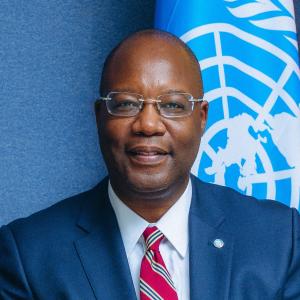Salutations:
- Honourable Minister of Trade, Industry, and Cooperatives;
- The Permanent Secretary, Ministry of Trade, Industry, and Cooperatives;
- Distinguished Representatives from the Government;
- The Private Sector Representatives;
- The Civil Society;
- Colleagues from the UN system;
- Ladies and Gentlemen.
Good morning to you all.
It is a privilege to join you today for this national consultation workshop for the launch of the UN Trade and Development (UNCTAD) project on Small and Medium-sized Enterprises (SMEs) participation in regional value and supply chains in Uganda. This event marks an important step towards strengthening the role of SMEs in Uganda’s national and regional trade landscape. I extend my deepest appreciation to the Ministry of Trade, Industry, and Cooperatives, and our colleagues at the UN Trade and Development (UNCTAD), for bringing us together today, to explore strategies for SMEs participation in regional value chains.
Ladies and Gentlemen,
As you know already, Uganda’s economy has grown significantly, with its GDP per capita doubling over the past two decades. But GDP growth alone is not enough, if it is not inclusive.
For Uganda to truly thrive and create jobs for the fast-growing working age population, we must ensure that small businesses, the backbone of our economy, are fully integrated into regional value and supply chains. Uganda already exports 41% of its goods to African markets, with strong ties to Kenya, South Sudan, Rwanda, and the Democratic Republic of Congo. The African Continental Free Trade Area (AfCFTA) presents an even greater opportunity, unlocking an estimated US Dollars 217 million in additional exports according to UNCTAD’s estimates.
But barriers remain, with SMEs facing challenges such as:
- High cost of doing business, including electricity and transport.
- Limited access to finance, preventing businesses from expanding.
- Regulatory and non-tariff barriers, making trade unpredictable.
- And a lack of digital and technological tools to compete in modern markets.
This is why today’s consultation workshop is important.
Dear stakeholders,
The United Nations Resident Coordinator’s Office in Uganda plays a key role in ensuring that UN support is well coordinated, aligned with national priorities, and focused on sustainable development outcomes. Through our five-year Cooperation Frameworks with the Government of Uganda, we support Uganda’s efforts to advance implementation of the Sustainable Development Goals (SDGs), and the National Development Plans in line with the Uganda Vision 2040.
The UNCTAD Project on SMEs’ participation in regional value chains is designed to empower SMEs and policymakers with the tools, policy incentives, and market knowledge needed to succeed.
In particular, this project aligns with the UN Sustainable Development Cooperation Framework 2021-2025 Strategic Priority 2: Shared Prosperity in a Healthy Environment, which prioritizes economic transformation, trade facilitation, and private sector resilience. By working closely with government agencies, other development partners, and the private sector, we aim to ensure that SMEs are not just participants in trade, but key drivers of Uganda’s economic transformation.
This workshop is an opportunity to align expertise, share insights, and shape policies that will have a lasting impact on Uganda’s SME sector. We have four (4) key objectives today:
- Officially launch and present the UNCTAD project on SME participation in regional value chains and validate its alignment with Uganda’s national priorities.
- Discuss policies and strategies to improve SME competitiveness and trade access.
- Gather input from you, our main stakeholders, to refine research efforts and build better trade-support tools.
- Gather feedback on UNCTAD’s Cross-Border Mobile Application, a tool designed to improve trade data access and help SMEs navigate regional markets. Digital solutions like this can be a game-changer for small businesses.
I encourage everyone in this room to actively participate in today’s discussions and reflect on the following questions:
- How can we make financing more accessible for SMEs?
- What policies and reforms can be implemented?
- How do we ensure that digital tools are relevant for policymakers and SMEs?
Your insights today will shape the implementation of this innovative project in Uganda.
I want to thank UNCTAD, the Ministry of Trade, Industry, and Cooperatives, and all our partners for their leadership in advancing the role of SMEs in promoting sustainable development. The United Nations in Uganda remains committed to collaborating with all stakeholders to make this project a success.
With these few remarks, I officially declare this national consultation workshop open.
Thank you.






